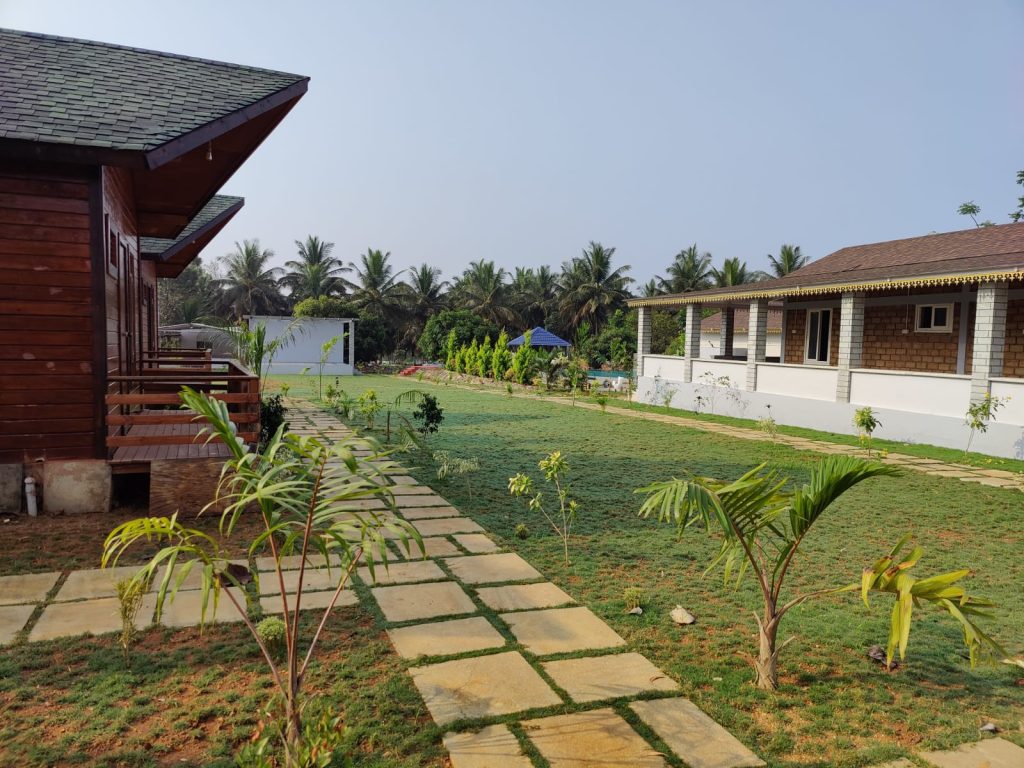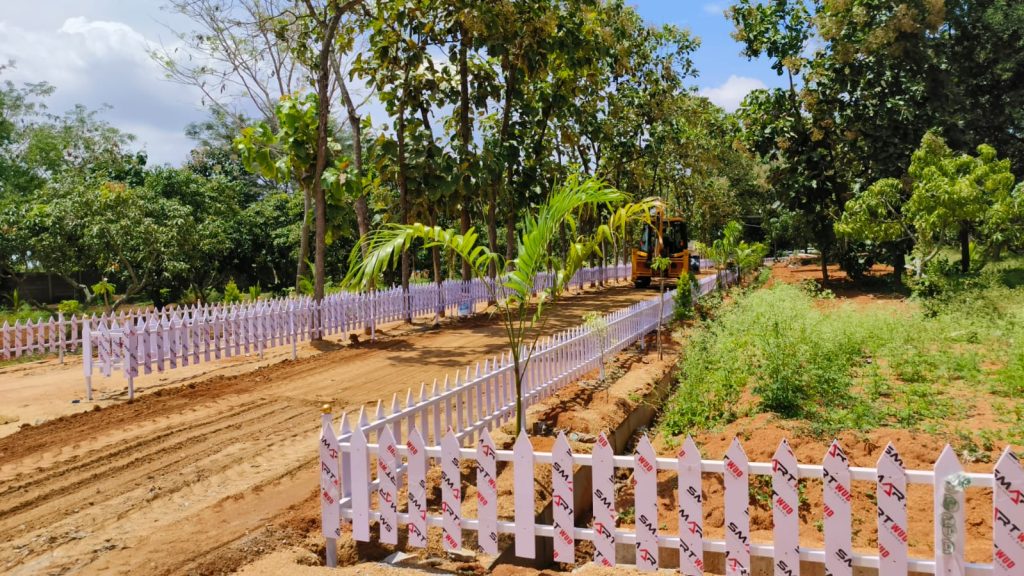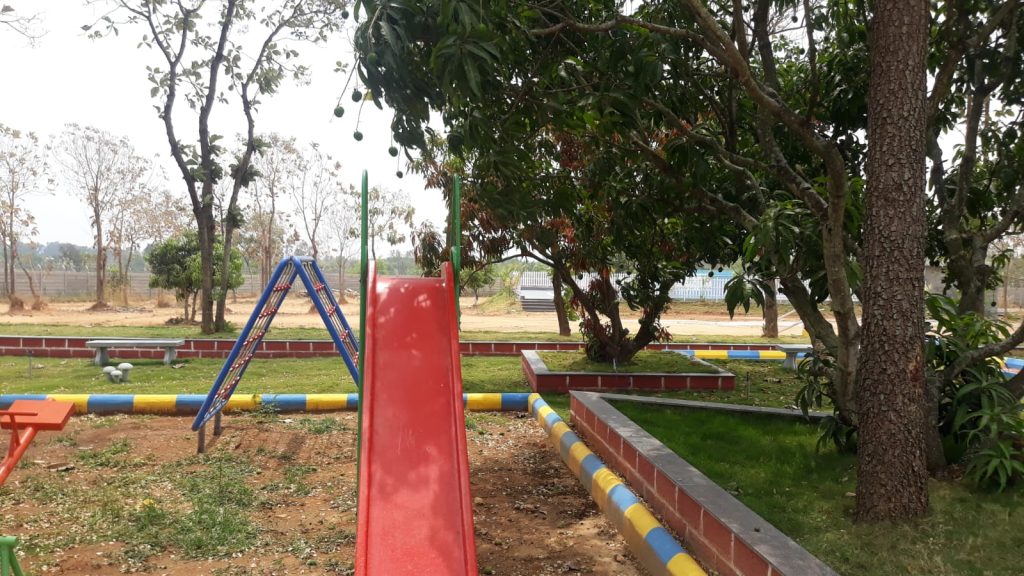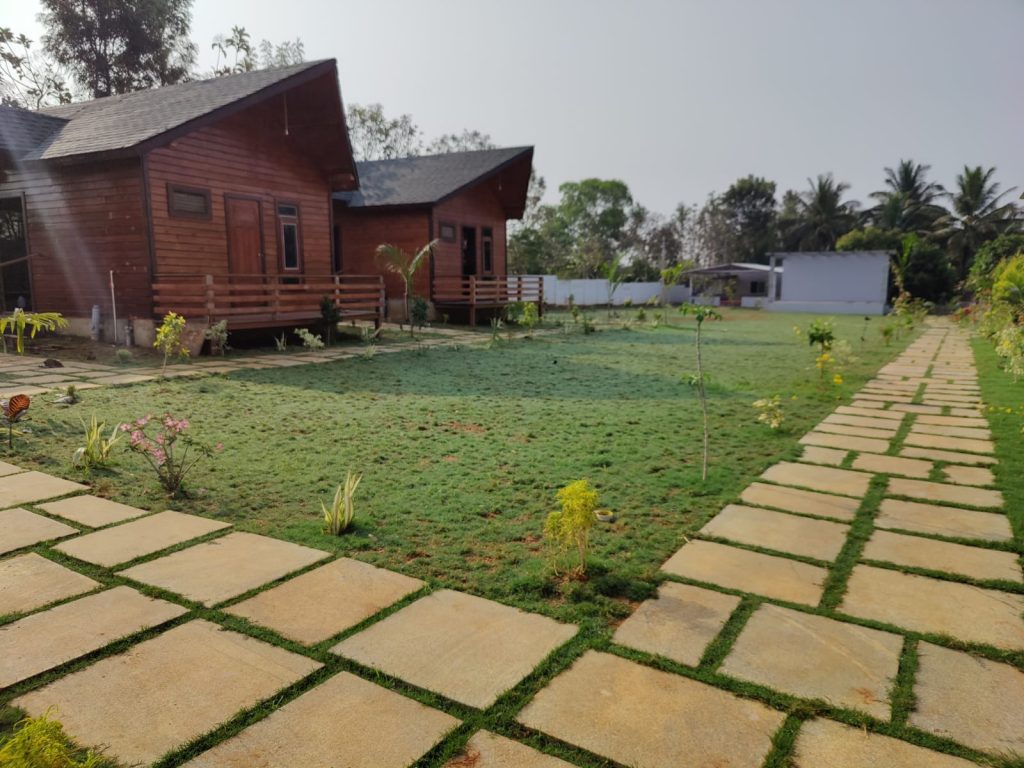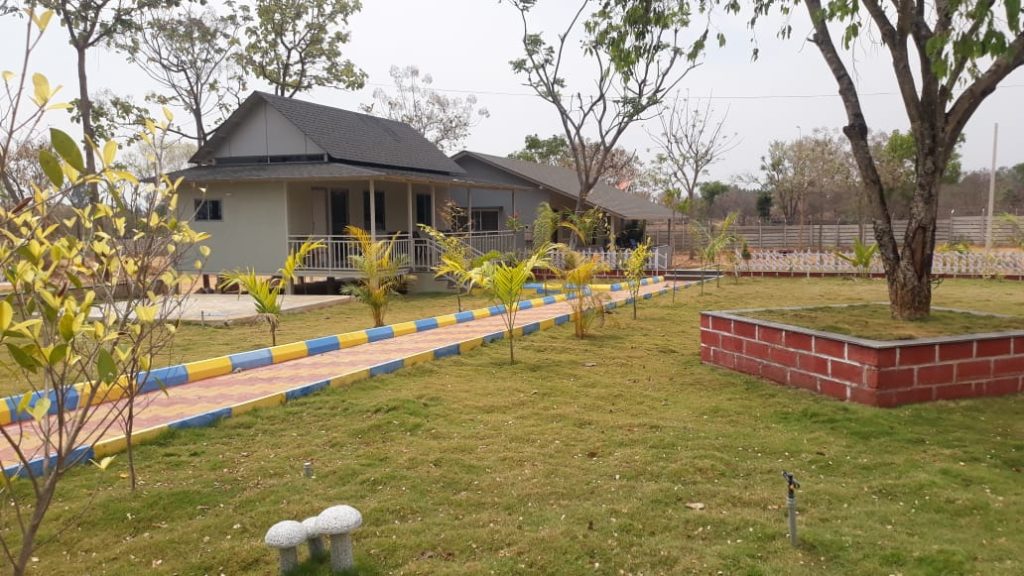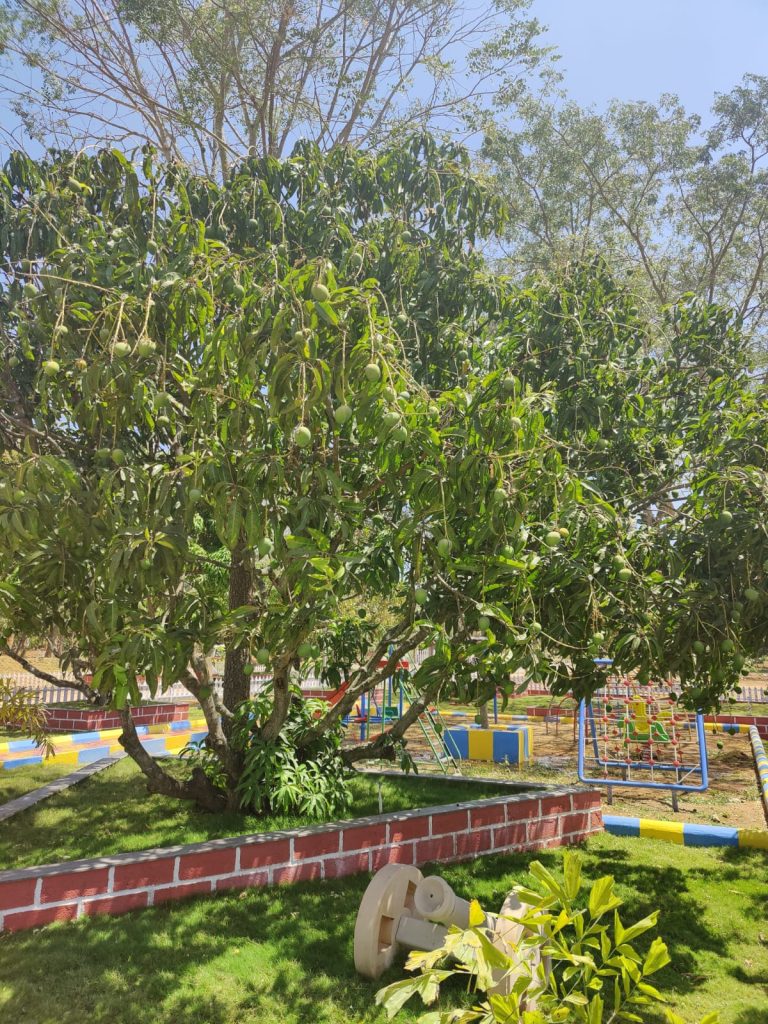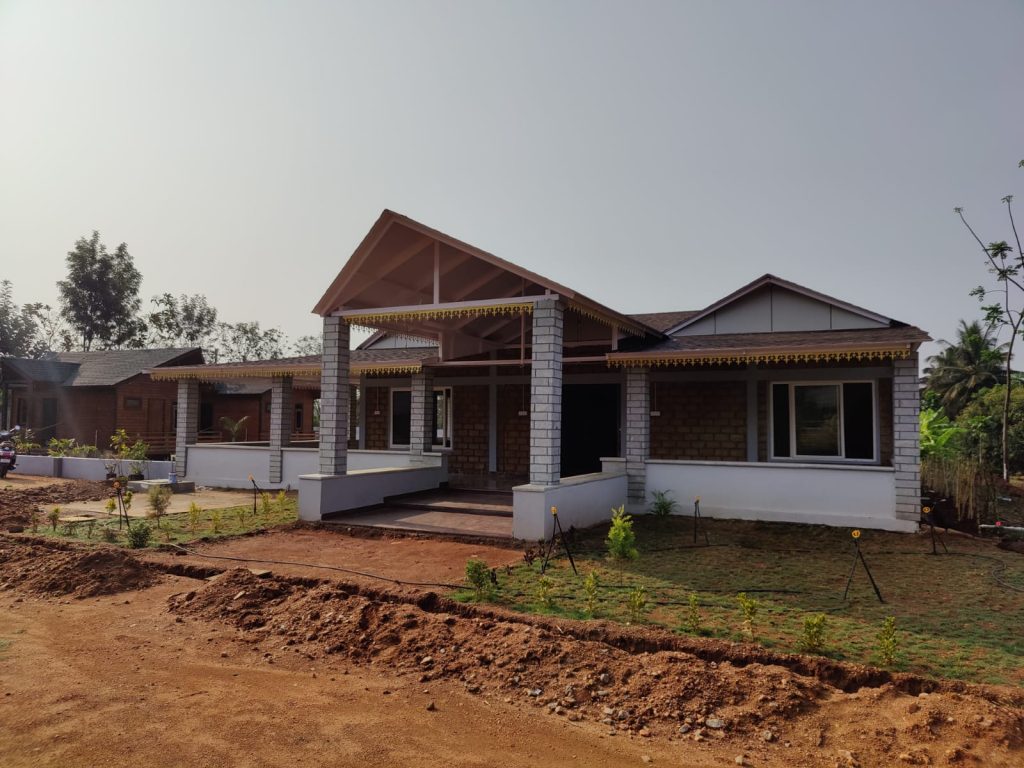
In the pursuit of sustainable land management and ecological restoration, the role of managed farmland emerges as a powerful and innovative solution. Traditionally viewed as spaces solely for food production, modern agricultural practices are evolving to incorporate principles of conservation and ecosystem restoration. This change recognises the potential of managed farmland to cultivate crops and heal and restore ecosystems, fostering a harmonious balance between agricultural productivity and environmental conservation. Sharanya Farm Managed farmland near Mysore Road where modern agricultural practices are incorporated for conservation and ecosystem restoration. Farmlands now cover more than one-third of the Earth’s land surface and are perhaps our most vital ecosystems to sustain humankind.
Agroecology: A Holistic Approach to Farming
At the heart of the movement towards managed farmland as an agent of restoration is the philosophy of agroecology. Agroecology integrates ecological principles into agricultural systems, emphasizing the interconnectedness of ecosystems and the importance of sustainable, regenerative practices. Through the application of agroecological principles, managed farmland becomes a dynamic space where the cultivation of crops goes hand in hand with ecosystem restoration.
Biodiversity Conservation on Farmlands
Traditional monoculture practices have often been criticized for their negative impact on biodiversity. In contrast, managed farmland employs diversified cropping systems, cover cropping, and agroforestry, creating an environment that supports a variety of plant and animal species. This intentional cultivation of biodiversity contributes to the restoration of ecosystems by recreating more natural and resilient landscapes.
Soil Health and Carbon Sequestration
Sustainable farming practices, such as cover cropping and reduced tillage, play a pivotal role in enhancing soil health. Healthy soils act as a carbon sink, sequestering carbon from the atmosphere and mitigating the impacts of climate change. By restoring degraded soils through managed farmland practices, farmers contribute to global efforts to combat climate change and promote environmental resilience.
Riparian Buffers and Water Quality Management
Integrating riparian buffers along water bodies within farmland helps prevent soil erosion and improves water quality. These buffers act as natural filters, trapping sediments and filtering out pollutants before they reach waterways. The result is not only healthier aquatic ecosystems but also improved water quality for both agricultural and local communities.
Reforestation and Agroforestry
Managed farmland provides an opportunity for integrating trees and woody perennials into agricultural landscapes through agroforestry. This approach offers numerous benefits, including increased biodiversity, improved soil structure, and enhanced water retention. If you are looking for a farmland for sale near me, then look no further than Sharanya Farm where innovative practices and efforts on farmlands contribute to the restoration of native habitats and provide valuable ecosystem services.
Wildlife Habitat Enhancement
Thoughtful land management practices on farmland can create habitats that support diverse wildlife populations. This involves preserving natural areas, implementing wildlife corridors, and incorporating elements such as hedgerows and pollinator-friendly plants. By transforming managed farmland into a haven for wildlife, farmers actively participate in restoring ecological balance.
Community Engagement and Education
Managed farmland serves as an educational platform for the broader community. Farmers engaging in restoration practices can share their experiences, knowledge, and successes with others. This fosters a sense of community involvement and environmental stewardship, encouraging the adoption of sustainable practices beyond individual farmlands. Conservation and soil health practices, paired with secured land rights and equal rights for farmers, can give communities better yields, higher financial returns, improved resource quality, and reduced soil degradation.
Permaculture Principles for Sustainable Agriculture
Permaculture, a design system based on ecological principles, provides a blueprint for integrating diverse elements within the managed farmland ecosystem. By mimicking natural patterns and incorporating elements such as perennial crops, mixed planting, and water management techniques, permaculture enhances the resilience and sustainability of farmland ecosystems.
Summary
Managed farmland, when approached through the lens of ecosystem restoration, emerges as a dynamic force for positive change. Through intentional practices rooted in agroecology, sustainable agriculture becomes a conduit for healing the environment and promoting biodiversity. The fusion of traditional agricultural knowledge with innovative approaches, such as agroforestry and permaculture, transforms farmland into multifunctional landscapes that contribute to broader conservation goals. If you are in Bangalore and search for the best managed farmland near me, then choose Sharanya Farm where by adopting and championing sustainable practices, they not only secure the productivity of their farmland but also become crucial agents in the global effort to restore and conserve ecosystems.
The cultivation of restoration through managed farmland exemplifies the potential for agriculture to be a regenerative force, ensuring a sustainable and balanced coexistence between human activities and the natural world. As we navigate the challenges of the future, the integration of ecological principles into managed farmland practices offers a beacon of hope for a more resilient and harmonious relationship between agriculture and the environment.
